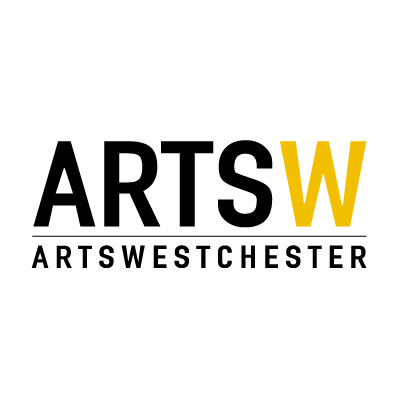Ossining Juneteenth Interview with Joyce Sharrock-Cole
Excerpt from an interview with Joyce Sharrock-Cole, Ossining Village Historian Conducted on April 18, 2022 by Aaron Paige.
Aaron Paige:
How did the Ossining Juneteenth begin?
Joyce Sharrock-Cole:
It was birthed in 2020, after the murder of George Floyd and subsequent civil unrest in the Country. There were two dynamic, Ossining women, Diana Lemon and Althema Goodson who decided it was time to organize and educate the community. Shortly thereafter, Ossining resident and entrepreneur Juanda Dabbs and I were invited to join. I was invited to join because of my passion for history and position as Village Historian. Our first order of business was to organize the first community celebration of Juneteenth in the middle of an ongoing global pandemic. It was no small feat; however, we put the event together in a little under four weeks. We garnered the support of both the Town and Village of Ossining. The Town providing the space, which was the Ossining Waterfront (Louis Engel Waterfront Park). In conceptualizing the celebration, we wanted to celebrate our community including the use of Ossining vendors, talent and politicians. From the DJ (Spencer Thomas) to the African Dancer (Gladys Lowe) it was all full of Ossining talent. We wanted to mimic the very first Juneteenth, because to us, we were starting from scratch. We also decided that since this was our first community celebration we should mimic the first Juneteenth Celebration in 1866. It was important for us to educate the community on what the significance of the day was and what place it has in the American history story. We had never done this before. Being a Historian, I felt a responsibility to teach the history of this historic event in American History. If you go out and ask the community what is Juneteenth, does anybody know? My feeling was that we needed to start from the beginning. Everyone loves a great celebration; however, we need to understand why we are celebrating.
One point that I wanted to drive home is that Juneteenth is a celebration of liberation. It is the first Independence Day for my ancestors who were enslaved on the 4th of July 1776. That day was not a day of freedom for them. The fact is America has two Independence Days; and for us, this is the first. I am a descendent of a few Union Soldiers, colored troops. Therefore, I celebrate with great pride and understanding of their sacrifice for my freedom.
The most powerful moment, for me, of our first celebration was the deliverance of the “History of Juneteenth”. We wanted to deliver the history in an engaging way. Four readers (history and slave narratives) and one drummer delivered the history. It was so climactic…the end was the reading of Executive Order No. 3. I remember vividly feeling as if I was there in 1865 hearing it for the first time. Everyone in the audience just started clapping because we took them on that journey and then set everybody free. To me, the telling of the story in that way brought the history to life. It was so powerful. The narration, the slave narratives, all building up to Major General Gordan Granger the reading of Executive Order Number 3. People said it was like watching a movie, as if they were there on that historic day.
Aaron:
Did you create the narrative yourself?
Joyce Sharrock-Cole:
Yes, I did. It was imperative to tell the history but I did not want to bore the audience spewing facts and dates. Combining history with the voices of those who experienced the time-period I thought would be powerfully moving. The volleying between historical facts, narratives of the formerly enslaved then the reading of the Executive Order No.3 was great but the added layer of the African Drumming was by BabaKazi Oliver. BabaKazi was brilliant in how he played, his drumming matched the cadence of the speaker at times and complimented it the cadence other times. You had to be there! I do not think I can find the right words to properly articulate this moment. If I had to assign one word it would be, Captivating!
Aaron:
As the Village Historian, are you at all exploring the history of Ossining’s African American community in your Juneteenth celebration?
Joyce Sharrock-Cole:
Yes, I accomplish this in different ways and throughout the year. I am an advocate for people learning their history, whatever it is. I teach the village about our shared history, about enslavement in Ossining and those that escaped enslavement and made Ossining their home. As a public historian that is also a genealogist, I spend a lot of time researching the lives of the people that made up the community. On Juneteenth we will be highlighting and celebrating those that have went before us and paved the way and those today that are fighting for us to go forward. I will never stop telling their story until it is part of the bigger story. As historian, I am trying to normalize hearing the history of the forgotten and marginalized.
At Bethany Arts Community, I curated for the second year, the Ossining Black History & Culture exhibit. The exhibit covered the journey of no return to this country, enslavement, freedom and today. A glimpse of the lives of the Ossining Black community and beyond. Their struggles, their resilience and triumphs. There was a display of local slave owners names and how many enslaved Africans they owned. It was a sobering display for some and cathartic for others. It was an in your face exhibit of truth. The telling of History is not meant to make you comfortable; it has to state the facts. I do it in a way that I think is digestible for people, in my opinion. You have to ask someone that was there. However, some topics just inherently make people uncomfortable. Enslavement, Ownership, struggles, inequality, and systemic racism are not easy topics. However, they must be talked about and its effects made known.
Aaron:
What are your Juneteenth plans for this coming year?
Joyce Sharrock-Cole:
Each year, we add more to the celebration as the support grows. We are excited this year to have Neeks Catering back to serve our community traditional African Foods. Last year, the chef, Babatunde said that was the first food to go. We explained to him that the food was amazing but it meant more eating the food of a culture we are genetically connected to but know nothing about.” We want to immerse ourselves in the culture whether food, drumming, and learning the history. We want to feel home. Our original home. As in the past two years, we are celebrating talent in our community. The DJ, MC, Spoken word artist, praise dancers, poets and more are all from Ossining. We also have a nice selection of vendors from the community that will be selling their products. We partner with the Ossining School District, MBK Program and the scholars help with the program as well.
Aaron:
Are there any individuals that you are excited about working with this year, whether they’re young people or local artists?
Joyce Sharrock-Cole:
We are very excited to work with Steven Dillard. He was in the rap group ILL-Responsible, community activist and a popular line dance instructor. He will serve as the celebration Emcee. Our DJ will be Spencer Thomas “DJ Spinny Spin” who did an amazing job the last two years for numerous events. Spencer was in Ossining’s pioneer rap group, the Separate 5. Neeks Catering and the amazing African Food we experienced last year.
We are also excited to extend an invitation to have our elected officials in office and those running to say a few words to the community on this day.
The Ossining Branch of the NAACP Youth Group will host a fashion show on Friday, June 17th at Bethany Arts Community, which is part of the celebration weekend.
Aaron:
Where does your program take place?
Joyce Sharrock-Cole:
Louis Engel Waterfront Park in Ossining. We have a gorgeous waterfront, so we wanted to go back there. However, there is historic significance for this venue. After emancipation, Black people were not allowed to congregate in public areas, so they would go down by the waterfront to have their events and commune with each other. Down in Texas, they actually purchased their own park “Emancipation Park” so they could have their celebrations.
We are intentional about what happens at our Juneteenth Celebration. Even the foods are intentional. Last year, we had the red foods. I talked about the history of these foods, including watermelon. I explained the stigma about watermelon and black people. I asked one question, “Did you know the watermelon crop sustained the black family?” Your family knew how to grow this crop. They were making money and surviving off revenue earned from selling their crop of watermelon. It was when the former white enslavers started with the caricatures of big-lipped black people eating watermelon and made people believe it was a poor man’s food and not to buy it. Further explained that it was the crop that sustained us, enabled us to purchase land (many for the first time). The caterer said after that lesson the watermelon was gone. This is the power of knowledge. It frees you.
Aaron:
What meaning does Juneteenth have for you personally, and how has its meaning for you changed or evolved over the time?
Joyce Sharrock-Cole:
Growing up, I had no idea. We were not taught about Juneteenth in school. I learned about it later in life. The meaning has evolved for me, especially as I become more aware of my genealogy of that of others. Knowing that my family that fought in the civil war are a part of the Juneteenth story, they are a part of American History. Discovering that I am a descendent of enslaved African’s in this country gives Juneteenth deeper meaning for me. This day meant a whole lot to my ancestors and therefore means a whole lot to me. This day was transformative for them. I reflect on what they endured, how they survived and how they persevered. I also think the celebrating of Juneteenth is a call to action, as we learn of what our ancestors endured and their subsequent freedom and the struggle that black people still have. What do we do next?
That first Juneteenth celebration was a great big freedom party but there was also a meeting of the minds. I image them sitting at the table and devising a plan of what is next. They spoke of who to endorse in elections, who would run for office, how to fight to live equally in the US. Juneteenth means Liberation and Juneteenth means it is time to go to work.

About ArtsWestchester
For more than 50 years, ArtsWestchester has been the community’s connection to the arts. Founded in 1965, it is the largest private not-for-profit arts council in New York State. Its mission is to create an equitable, inclusive, vibrant and sustainable Westchester County in which the arts are integral to and integrated into every facet of life. ArtsWestchester provides programs and services that enrich the lives of everyone in Westchester County. ArtsWestchester helps fund concerts, exhibitions and plays through grants; brings artists into schools and community centers; advocates for the arts; and builds audiences through diverse marketing initiatives. In 1998, ArtsWestchester purchased the nine-story neo-classical bank building at 31 Mamaroneck Avenue which has since been transformed into a multi-use resource for artists, cultural organizations and the community. A two-story gallery is located on the first floor of ArtsWestchester’s historic building on Mamaroneck Avenue. artsw.org
